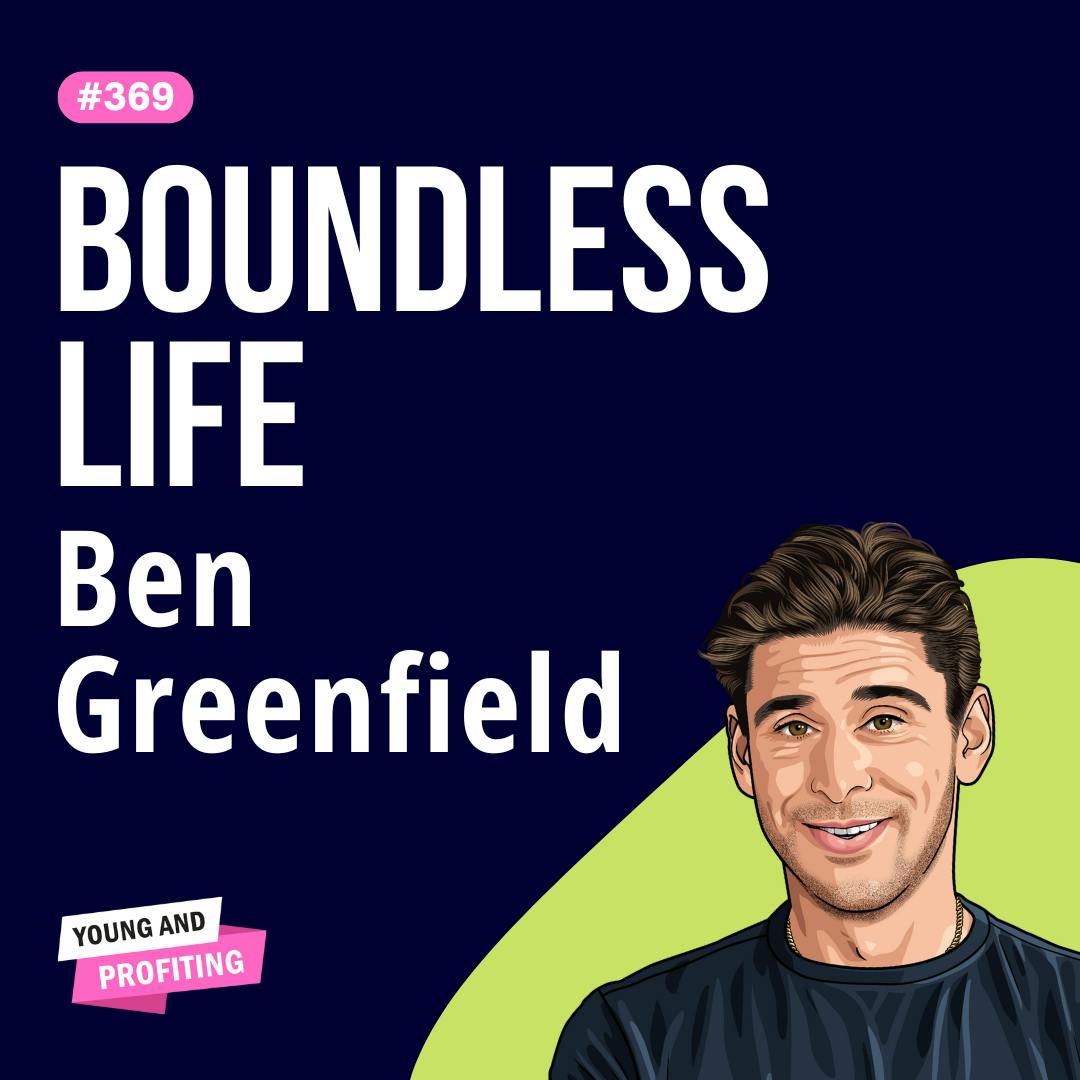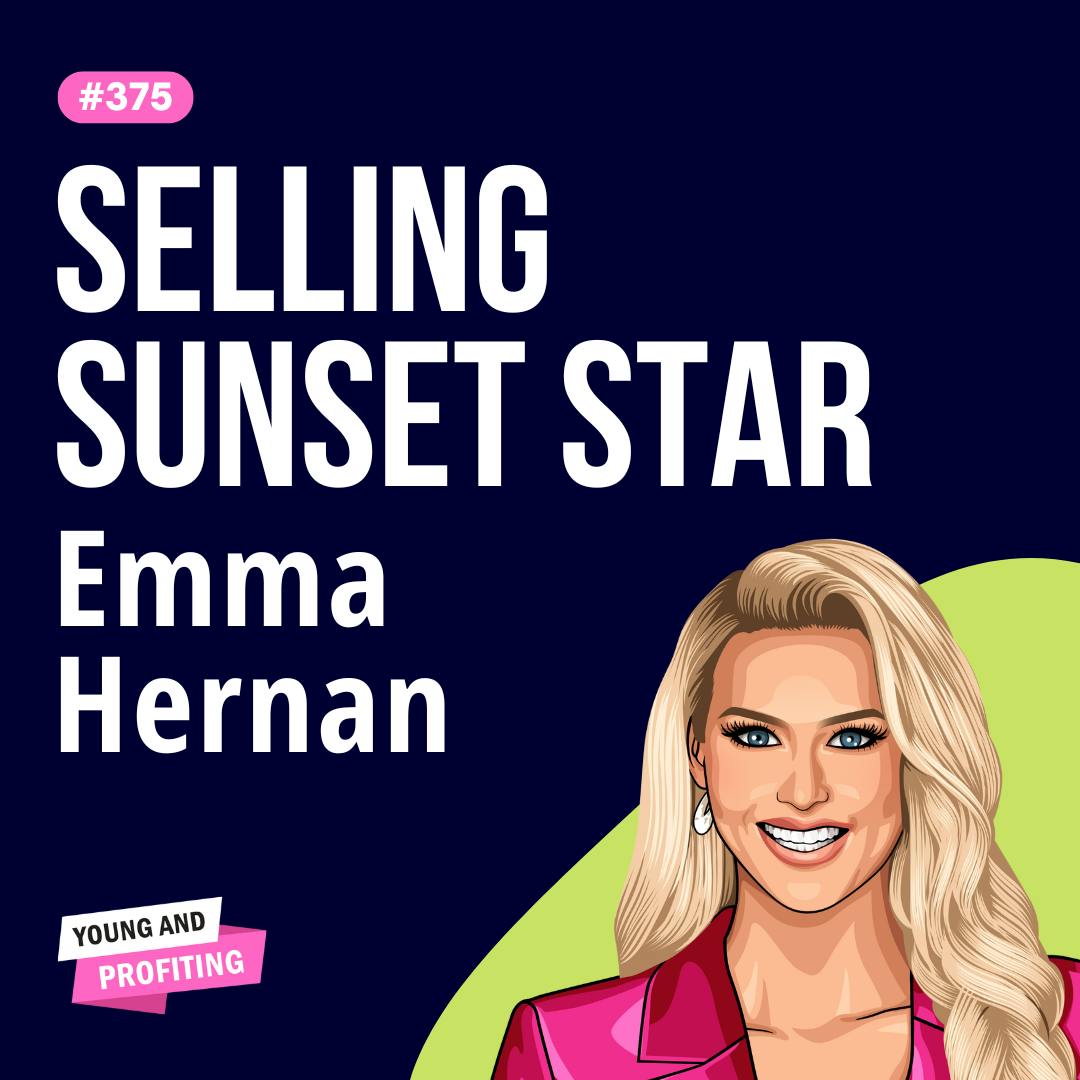Ben Greenfield: Biohack Your Way to Peak Health and Overall Wellness | Health and Wellness | E369
Many modern families sit too much, eat mostly processed foods, and rarely connect with each other or their environment. Ben Greenfield has seen how these habits quietly undermine health and longevity. He believes true wellness comes from balancing diet, building connection, and blending ancestral habits with the thoughtful use of modern science and biohacking tools. In this episode, Ben shares his daily routines for supporting healthy aging and offers practical strategies to create a lifestyle and home that optimize health, longevity, and overall wellness.
In this episode, Hala and Ben will discuss:
(00:00) Introduction
(02:13) Blending Biohacking with Ancestral Wisdom
(13:10) Optimizing Your Home for Longevity
(19:51) Healthy Family Habits for Lasting Wellness
(28:21) Ben’s Perspective on Meat, Diet, and Nutrition
(39:56) Measuring Biological Age and Healthspan
(44:30) How Mindset Shapes Aging and Well-Being
(47:35) Redefining Longevity and Immortality
(51:37) Rating Today’s Top Biohacking Trends
(56:25) Wellness Trends and Entrepreneurship Advice
Ben Greenfield is a health consultant, New York Times bestselling author, and biohacker known for his work in fitness, nutrition, and longevity. He is also a sought-after speaker and the host of the Boundless Life podcast. His latest book, Boundless, is a revised edition offering strategies to boost energy, slow aging, improve performance, and achieve lasting wellness.
Sponsored By:
Airbnb - Find yourself a cohost at airbnb.com/host
Indeed - Get a $75 sponsored job credit to boost your job's visibility at Indeed.com/PROFITING
Shopify - Start your $1/month trial at Shopify.com/profiting.
Mercury - Streamline your banking and finances in one place. Learn more at mercury.com/profiting
Open Phone - Get 20% off your first 6 months at OpenPhone.com/profiting.
DeleteMe - Remove your personal data online. Get 20% off DeleteMe consumer plans at to joindeleteme.com/profiting
SKIMS - Shop SKIMS Fits Everybody collection at SKIMS.com
Policy Genius - Secure your family’s future with Policygenius. Head to policygenius.com/profiting
Masterclass - Get an additional 15% off any annual membership at https://masterclass.com/profiting
BitDefender - Save 30% on your subscription at bitdefender.com/profiting
Resources Mentioned:
YAP E259 with Ben Greenfield: youngandprofiting.co/HustleCulture
Ben’s Book, Boundless: bit.ly/_Boundless
Ben’s Book, Boundless Parenting: bit.ly/B_Parenting
Biochemical Individuality by Roger Williams: bit.ly/BchemIndividuality
Ben’s Website: bengreenfieldlife.com
Ben’s Coaching: bengreenfieldcoaching.com
Active Deals - youngandprofiting.com/deals
Key YAP Links
Reviews - ratethispodcast.com/yap
YouTube - youtube.com/c/YoungandProfiting
LinkedIn - linkedin.com/in/htaha/
Instagram - instagram.com/yapwithhala/
Social + Podcast Services: yapmedia.com
Transcripts - youngandprofiting.com/episodes-new
Entrepreneurship, Entrepreneurship Podcast, Business, Business Podcast, Self Improvement, Self-Improvement, Personal Development, Starting a Business, Strategy, Investing, Sales, Selling, Psychology, Productivity, Entrepreneurs, AI, Artificial Intelligence, Technology, Marketing, Negotiation, Money, Finance, Side Hustle, Startup, Mental Health, Career, Leadership, Mindset, Health, Growth Mindset, Motivation, Manifestation, Brain Health, Life Balance, Self-Healing, Positivity, Happiness, Sleep
In this episode, Hala and Ben will discuss:
(00:00) Introduction
(02:13) Blending Biohacking with Ancestral Wisdom
(13:10) Optimizing Your Home for Longevity
(19:51) Healthy Family Habits for Lasting Wellness
(28:21) Ben’s Perspective on Meat, Diet, and Nutrition
(39:56) Measuring Biological Age and Healthspan
(44:30) How Mindset Shapes Aging and Well-Being
(47:35) Redefining Longevity and Immortality
(51:37) Rating Today’s Top Biohacking Trends
(56:25) Wellness Trends and Entrepreneurship Advice
Ben Greenfield is a health consultant, New York Times bestselling author, and biohacker known for his work in fitness, nutrition, and longevity. He is also a sought-after speaker and the host of the Boundless Life podcast. His latest book, Boundless, is a revised edition offering strategies to boost energy, slow aging, improve performance, and achieve lasting wellness.
Sponsored By:
Airbnb - Find yourself a cohost at airbnb.com/host
Indeed - Get a $75 sponsored job credit to boost your job's visibility at Indeed.com/PROFITING
Shopify - Start your $1/month trial at Shopify.com/profiting.
Mercury - Streamline your banking and finances in one place. Learn more at mercury.com/profiting
Open Phone - Get 20% off your first 6 months at OpenPhone.com/profiting.
DeleteMe - Remove your personal data online. Get 20% off DeleteMe consumer plans at to joindeleteme.com/profiting
SKIMS - Shop SKIMS Fits Everybody collection at SKIMS.com
Policy Genius - Secure your family’s future with Policygenius. Head to policygenius.com/profiting
Masterclass - Get an additional 15% off any annual membership at https://masterclass.com/profiting
BitDefender - Save 30% on your subscription at bitdefender.com/profiting
Resources Mentioned:
YAP E259 with Ben Greenfield: youngandprofiting.co/HustleCulture
Ben’s Book, Boundless: bit.ly/_Boundless
Ben’s Book, Boundless Parenting: bit.ly/B_Parenting
Biochemical Individuality by Roger Williams: bit.ly/BchemIndividuality
Ben’s Website: bengreenfieldlife.com
Ben’s Coaching: bengreenfieldcoaching.com
Active Deals - youngandprofiting.com/deals
Key YAP Links
Reviews - ratethispodcast.com/yap
YouTube - youtube.com/c/YoungandProfiting
LinkedIn - linkedin.com/in/htaha/
Instagram - instagram.com/yapwithhala/
Social + Podcast Services: yapmedia.com
Transcripts - youngandprofiting.com/episodes-new
Entrepreneurship, Entrepreneurship Podcast, Business, Business Podcast, Self Improvement, Self-Improvement, Personal Development, Starting a Business, Strategy, Investing, Sales, Selling, Psychology, Productivity, Entrepreneurs, AI, Artificial Intelligence, Technology, Marketing, Negotiation, Money, Finance, Side Hustle, Startup, Mental Health, Career, Leadership, Mindset, Health, Growth Mindset, Motivation, Manifestation, Brain Health, Life Balance, Self-Healing, Positivity, Happiness, Sleep
Press play and read along
Transcript
Transcript is processing—check back soon.
Young and Profiting with Hala Taha (Entrepreneurship, Sales, Marketing) — Ben Greenfield: Biohack Your Way to Peak Health and Overall Wellness | Health and Wellness | E369





